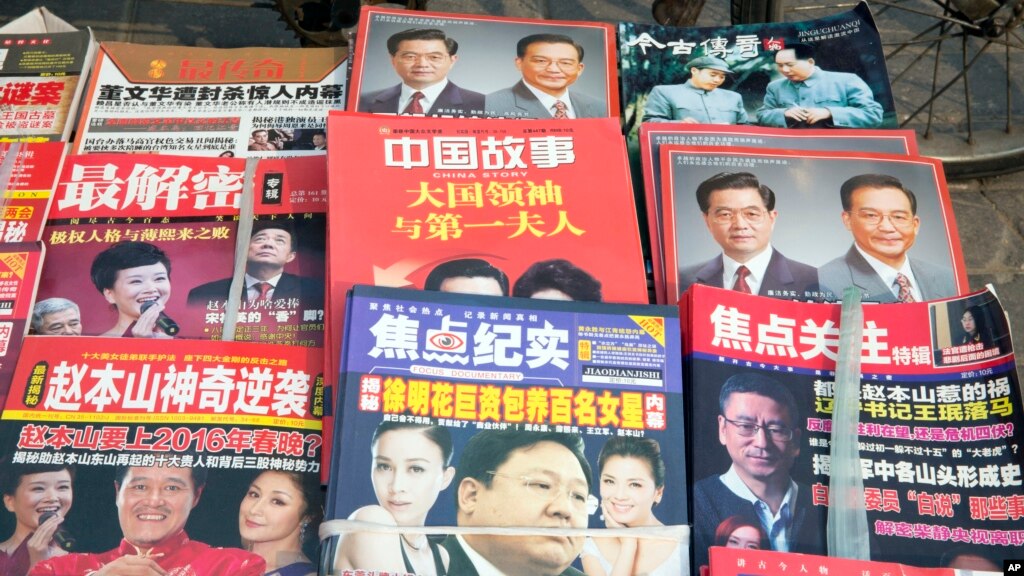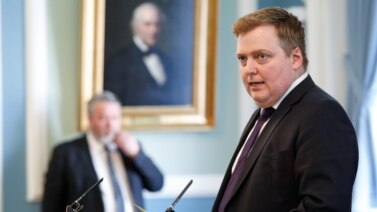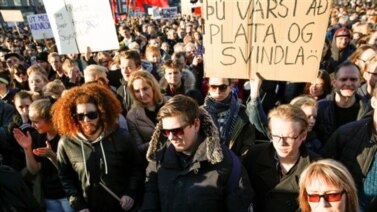
Relatives of members of the Chinese Communist Party’s past and current top leadership have been named in leaked documents known as the Panama Papers.
More than 11-million confidential documents were taken from the law business Mossack Fonseca in Panama. The documents were then given to a group of reporters.
The documents show information about more than 214,000 offshore companies. They include the identities of shareholders and directors of the companies.
The documents show how rich individuals, public officials and their families placed money into businesses hidden from the public.
The International Consortium of Investigative Journalists released the documents.
Family members of at least seven current or former members of the Chinese Communist Party’s Politburo Standing Committee have been named in the documents. No one has been accused of any wrongdoing.
Family members of Chinese President Xi Jinping and Premier Li Peng were also named. One of Xi’s family members employed Mossack Fonseca to open one offshore company in 2004 and two in 2009, according to the ICIJ.
Li Xiaolin is a businesswoman and the only daughter of former premier Li Peng. The Associated Press reports that the law firm helped her buy an investment company. Ownership of the investment company was hidden by the use of documents that did not show the names of the owners.
The Associated Press also says Chen Dongsheng, a family member of Mao Zedong, created a company called Keen Best International Ltd. He was the only owner. He also heads a life insurance company and a company that sells art.
Few people openly talk about the large amounts of money controlled by the families of China’s ruling party members. Little is known about how the country’s rich and powerful people hide their wealth.
The Chinese public wants to know more about the financial dealings of the country’s officials and their families. But experts say it is not clear if the Panama Papers will cause the government to limit the use of banks outside the country by political leaders.
Putting money in banks of other countries is not illegal. These accounts can be used to legally avoid paying taxes. But reports say the Panama Papers show how banks, law firms and individuals violated the law and helped people hide wealth.
Since coming to power, President Xi has punished corrupt officials. Chinese media have reported on the actions to show that the Communist Party is serious about stopping corruption. But officials have blocked news stories by reporters outside China that tell about investments and financial gains by top officials and their family members.
Few reports about the Panama Papers have appeared in Chinese media. The Global Times, a Communist party-supported newspaper, printed an opinion column this week. It said the documents that were released unfairly told only about non-Western leaders.
A Chinese foreign ministry spokesman would not speak about the possible involvement of China’s leaders and their family members in illegal acts.
I’m Ashley Thompson.
William Ide reported this story for VOANews.com. Jim Dresbach adapted the story for Learning English. The editors were Mario Ritter and Christopher Jones-Cruise.
We want to hear from you. Write to us in the Comments Section or visit our Facebook page.
Words in This Story
confidential – adj. secret or private
offshore account – n. a bank or business account located or based in a foreign country that is not subject to tax laws
offshore companies – n. companies incorporated for the purpose of operating outside the country of its registration and/or the place of residence of its directors, shareholders and beneficial owners
shareholders – n. someone who owns shares in a company or business
scrutiny – n. the act of carefully examining something, especially in a critical way

